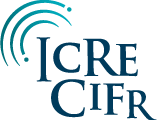
ICRE 2024: Call for abstracts: Research in residency education
Submission deadline: January 5, 2024
You are invited to submit your research abstracts for the 2024 International Conference on Residency Education (ICRE), in Ottawa Canada. Abstracts in this category should describe medical education research. Abstracts therefore need to include a research question and data (quantitative or qualitative).
We look forward to receiving submissions that align with the 2024 conference theme: Professionalism, Ethics, and Identity in Residency Education: Evolving in a Changing Landscape. Submissions related to all areas of residency education are welcome.

ICRE 2024: Call for abstracts: Research in residency education
Submission deadline: January 5, 2024
You are invited to submit your research abstracts for the 2024 International Conference on Residency Education (ICRE), in Ottawa Canada. Abstracts in this category should describe medical education research. Abstracts therefore need to include a research question and data (quantitative or qualitative).
We look forward to receiving submissions that align with the 2024 conference theme: Professionalism, Ethics, and Identity in Residency Education: Evolving in a Changing Landscape. Submissions related to all areas of residency education are welcome.
Guidelines for submitting a high quality research abstract
Title: Should summarize the abstract and suggest how the topic is relevant and important.
Author names: See below for instructions on how to list authorship.
Introduction: The introduction is usually several sentences that outline the question addressed by the research. The first sentence should frame the issue. Provide a concise review of what is known about the problem being addressed, what is unknown, and how your research project fills the knowledge gap. The final sentence should describe the purpose of the study and the hypothesis (latter only if applicable).
Methods: Methods should describe 1) who are the subjects (and how many), 2) the setting, 3) the research design, 4) description of the intervention, 5) a list of outcome variables and how they were measured, and 6) the statistical methods used to analyze the data.
Results: Describe the subjects that were included or excluded and response rate. List the most important outcome variables with the associated data. Numerical results should include standard deviations or 95% confidence limits and the level of statistical significance.
Conclusion: State concisely what can be concluded. This must be supported by data presented in the abstract. Describe the implications of your findings. Include major limitations and future directions
Visit our resource page to see a sample research abstract and tips on writing effective abstracts
Technical instructions for online submission of abstracts
The following pieces of information are required during the submission process.
- Title
- Abstract text: Note that the limit is 300 words (including headings).
- Do not use character formatting such as italic, bold, or ALL CAPS in title and text.
- Keywords: A maximum of three keywords can be entered.
- Contributors: For each contributor, you will need to provide their Email Address, Institution, First Name, Last Name, City, Province or State, and Country.
- The order of authorship will remain through all publications.
- Contributors can be rearranged during the submission process by simply dragging and dropping the contributors into the correct order. It is important to include the presenter in the list of contributors so that their name appears in the order of authorship.
- Presenter: During the submission process, please indicate the presenter. Note, only one person may be identified as the presenter. If the abstract is accepted, the presenter’s name will be underlined in the abstract book and all communication beyond notification of acceptance/non-acceptance will be with the identified presenter. Please note that the presenter’s name must also be included as a contributor so that their name appears in the order of authorship.
Instructions for submission and journal publication
- All abstracts must be submitted electronically, using the submission link below.
- Abstracts should be no more than 300 words in length (including headings). Single-space all typing, leaving one line space between paragraphs and other elements.
- Use standard abbreviations such as kg, g, mg, ml, L (litre), mEq, m (metre), mmol (millimole), / (per) and % (per cent). Place special or unusual abbreviations in parentheses after the full word the first time it appears. Use numerals to indicate all numbers (including 1–10), except to begin sentences. Non-proprietary (generic) names are required when a drug is mentioned. e.g., acetazolamide (Diamox).
- Place acronyms in parentheses after the full term the first time it is used.
- Do NOT include historical data, literature reviews, bibliographies, references or mention of corporate support.
Note: Submissions without results or conclusions indicated may be rejected. If your submission does not include results, please consider submitting under the “What Works? Innovations in residency teaching and assessment” track instead.
Criteria for abstract evaluation
- Background
- Shows understanding of existing literature.
- Links existing literature to the research.
- Clarity of the purpose
- The basic purpose of the research is clear.
- The objectives of the research address an important problem.
- Effective use of the scientific method
- Methods are appropriate.
- Significant variables are identified.
- Methods are clearly explained.
- Analysis is appropriate and clearly explained.
- Results
- Results describe the relevant data.
- Conclusions
- Accurate interpretation of results.
- Possible recommendations for education, practice or policy.
- Presentation
- The writing is clear.
Abstract review and selection
All abstract submissions will be acknowledged upon receipt. Submissions will be blinded, and peer reviewed.
In April 2024, the official notification of acceptance will be sent to the submitter of the abstract. In early-July, specific details will be provided to the presenter about the session date, time and presentation format. Papers will be scheduled for presentation on either Friday, September 20 or Saturday, September 21, 2024
Accepted abstracts will be posted on the Royal College website. The research paper abstracts will also be included in a special supplement in the Journal of Graduate Medical Education (JGME). The research poster abstracts will also be included in a special supplement in the Canadian Medical Education Journal (CMEJ).
Top paper prizes
There are two top research paper awards presented each year at ICRE:
- The Royal College/JGME Best Research Paper Award
- The Royal College/JGME Best Resident Research Paper Award
The recipient of each award will be announced during the closing remarks on Saturday, September 21, 2024.
Note: It is presumed that you will present in the language of your submission.
All presenters are required to register and pay the conference registration fees.
By submitting their abstract(s), the submitter consents to their contact information being shared with the Journal of Graduate Medical Education (JGME) or the Canadian Medical Education Journal (CMEJ), for editing purposes only.
Questions?
Telephone 613-730-8177 / 1-800-668-3740 ext. 186
E-mail: icre@royalcollege.ca
Access the submission site
(note that you may be required to create an account)
